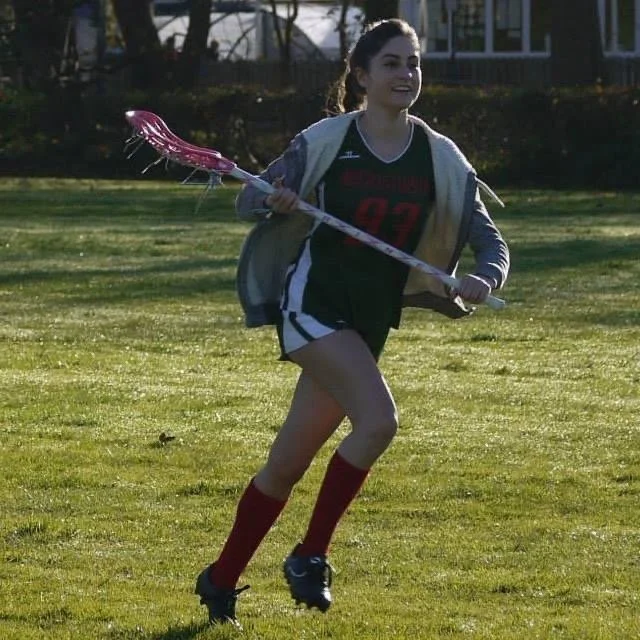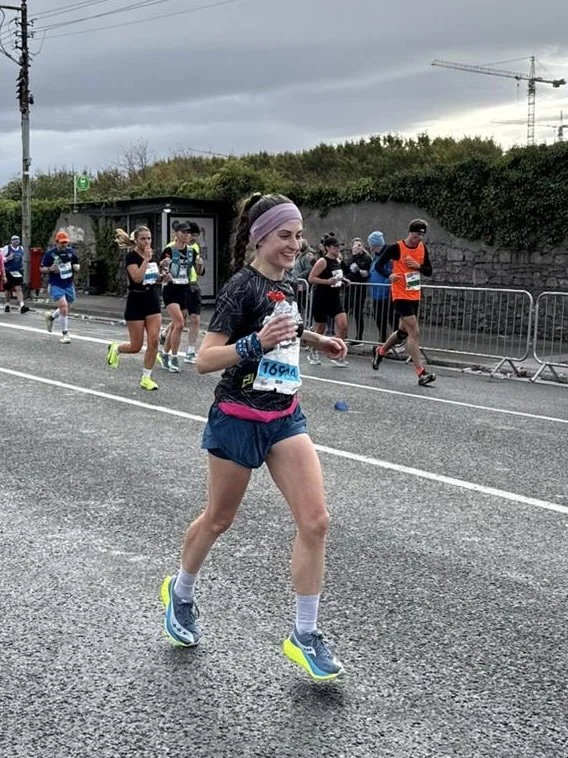ADHD & Exercise
Tools to help reading blogs - bionic reading - BR for You.
Text-to-speech - https://elevenlabs.io/text-to-speech
Ruler chrome extension - https://chromewebstore.google.com/detail/reader-line/fikijclmnnepcpijbljojpdaepikaicm
If you have followed me on Instagram, you may think I’m an athletic person, really into running and weight training, with the occasional hike when I can. Many of my clients ask me how I am consistent with exercise, and surprisingly to me, they seem surprised when I tell them that it does NOT come naturally to me, and I didn’t start training consistently until my late twenties.
ADHD means I struggle with motivation, energy regulation, and focus - traits which affect starting, and especially, sticking to exercise. It also means that ADHDers heavily lean into what we’re interested in, rather than what’s good for us.
just didn’t have any interest in sports aside from horse-riding but that was because I absolutely adored horses as a kid.
I used to despise PE in school so much that I often asked my mum to write notes so that I didn’t have to participate. The social aspect of this always frightened me too, so I hated everything about PE. I also have asthma so any exercise would feel difficult, and my heart rate was constantly high anyway from my omnipresent anxiety.
My balance is awful, and I was kicked out of Irish dancing classes as a child - seriously. My mum was devastated as she is a great Irish dancer, and her vicarious dreams of me kicking and frolicking around a stage in a curly wig were crushed. “Save your money” the teacher told her (and thank goodness she did, because she needed it for all of the maths grinds for my dyscalculia!).
I didn’t start a consistent form of exercise until I was in my twenties, and that was when I joined the lacrosse team in university. I was 26 and looking to try something new - surprise, surprise! Also, my friend and roommate dragged me along, thanks Chelsea! I am probably one of the clumsiest people, I often think I might be dyspraxic, or else it’s just the incoordination that goes along with my ADHD.
My first year playing lacrosse!
So, I always wrought myself off as someone who wasn’t even worthy of exercising, or being involved in sports, but a funny thing happened. I actually enjoyed the training. I enjoyed the focus needed to command my body (however clumsily) to do different types of movement, aside from my tried-and-tested terrible drunk dancing and moshing at gigs.
Anyway, I enjoyed this lacrosse lark, especially the social side - we would have Wednesday night socials with various themes - but I still noticed my terrible hand-eye coordination and familiar anxiety of being clumsy and “not athletic”.
But working up a sweat and being part of a team, hey, there may be something to this! I was also a little peeved that in all of my years seeking help for my mental health, doctors and therapists would recommend exercise, or “just go for a run”, like it was easy for a chronically anxious, depressed, undiagnosed neurodivergent klutz with T-Rex arms who didn’t sleep, and could hardly brush her teeth, to just get up and go running! But it actually felt good... hmmm. Peeved that there was something to this exercise malarky...
I was more surprised at this part, and so I kept going. Next, a friend in my uni classes was a gym-girlie, and she kindly and patiently helped me to start lifting weights. Now this was super scary - a gym? Me? Lifting weights and looking at myself in the mirror when there were normies around? Awkward! But again, it felt good. I actually started to notice improvements in my coordination and body-awareness, and I dabbled on and off for the rest of university.
My final year playing lacrosse!
Then, I hit my thirties, the gym had become a mainstay in my routine. I now loved it, but wondered when I’d get bored of it! In 2020, I was finally diagnosed with ADHD when I was 32, and this changed everything for me.
Covid hit, the gyms were closed, and everyone started running. Including me! I had run a bit with lacrosse, and joined my Dad’s running club in the summers when I was back from uni. I didn’t stick with it back then but revisited it during lockdown. I noticed the vast influence it had on my mental health, the way my brain felt during a run, and especially afterwards. The runner’s high was a real thing, and my dopamine-deficient neurons loved it.
The simple act of moving forward, breathing and throwing one foot in front of the other was meditative. To add more context, I was mostly running in a beautiful woods where I lived at the time, a sanctuary that saved me, especially during the later, difficult lockdowns. The first lockdown was a period of time where I actually thrived - see blog post about that here.
Exercise is helpful for ADHD for many reasons, including:
Increasing Dopamine and Norepinephrine Levels
Physical activity increases the levels of neurotransmitters like dopamine, norepinephrine, and serotonin. These neurochemicals play a major role in focus, attention, and emotional regulation - areas affected in ADHD
Enhances Prefrontal Cortex Activity
The prefrontal cortex (PFC) controls executive functions like decision-making, impulse control, and memory, and tends to be underactive in ADHD. Exercise can help improve PFC activity and efficiency.
Helps Regulate Sleep
Sleep issues are common in ADHD and can worsen focus, mood, and executive dysfunction. Regular exercise promotes better sleep quality, regulates and channels energy and helps regulate your circadian rhythm.
Aside from these, I have also seen an improvement in discipline and habit, and training has been useful to anchor my days and create structure that I actually (mostly) enjoy! Doing something uncomfortable can build resilience, and the ADHD experience can be dominated by feeling uncomfortable and overwhelmed with intense emotion. Physical exercise is honest and can be so helpful for regulation.
This year, I have even started an ADHD running club in Cork city, called, Cork ADHD Running (Late) Club, where we meet for casual runs, unmasking, oversharing, chatting, and then brunching!
More recently, we ran the Cork mini-marathon to raise funds for our fave charity, ADHD Ireland!
I completed an endurance running coaching course in 2023 and I intend on taking another full, comprehensive running coaching course in the new year so that I can start to offer coaching to neurodivergent runners! Watch this space!
Some of our ADHD Running (Late) Club after the 2024 Cork mini-marathon
So, I tell my clients that I still find it difficult to get out the door to go training and that I still have to create structure that helps me to take action. The hardest part is crossing the task transition from being at home in my regular clothes, to changing into my running gear, but once I can cross that barrier, I am in ADHD inertia, and I will always follow through. So the first steps for me is getting changed, and the rest follows. If I choose to do something else or instead sit on the couch, then I am also in ADHD inertia, and there won’t be any running that day.
Now, I’m not suggesting that everyone should run or lift weights; you have to find what works for you, and especially what you ENJOY! I never thought I would be someone who regularly trains, let alone love it, but I am, and that fact is still a novelty. I even completed my first marathon in Dublin this year!
Dublin Marathon 2024 - Mile 10/Kilometre 16




